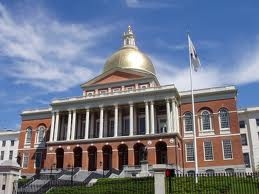BOB SALSBERG, Associated Press
BOSTON (AP) — Gov. Charlie Baker was poised to sign the state’s $38.1 billion budget into law and take a key first step toward his goal of overhauling the troubled Massachusetts Bay Transportation Authority.
The final spending plan, approved by the Democratic-controlled Legislature after several weeks of negotiations between the House and Senate, creates a five-member financial control board to oversee the Boston-area transit system for three years. Baker proposed the control board after a winter of record-setting snow crippled service, exposing management weaknesses and the system’s antiquated equipment.
In addition to approving the budget on Friday, Baker said he would name the members of the control board.
The budget is for the fiscal year that began on July 1 and is the first to be signed by Baker, a Republican who took office in January with a promise to address what he called a “spending problem” in state government. The budget contains no new taxes, and calls for a doubling of the earned income tax credit for low-income working families.
The state has been operating under a $5.5 billion stopgap budget since the beginning of the month.
The governor is expected to use his line-item veto power in an effort to trim some spending from the budget, though lawmakers would then have an opportunity to override those vetoes. Baker had mostly praise for the spending plan while appearing with House Speaker Robert DeLeo and Senate President Stan Rosenberg following a meeting with the legislative leaders earlier in the week.
In addition to creating the control board, lawmakers agreed to give the MBTA a temporary exemption from the restraints of the state’s anti-privatization rules, commonly known as the Pacheco Law after its author, Democratic Sen. Marc Pacheco of Taunton.
During an appearance Thursday on WGBH-FM, Baker said he did not anticipate widespread layoffs of transit workers, but said it might be possible to outsource some functions, such as late night T service that is popular among young people.
“This isn’t about privatizing the T,” said Baker. “It’s about leveraging in the best way to serve the riding public and the taxpayers who, by the way, put about $1 billion a year even if (they) don’t ride the T into the T to support it.”
The governor did not get all the changes he sought, as lawmakers rejected giving the control board more flexibility to raise MBTA fares above the current 5 percent cap or more power to override binding arbitration with unions.
Baker on Friday also planned to file a separate appropriations bill that would include $27.8 million to address an epidemic of opioid overdoses in Massachusetts, including more than $15 million for substance abuse programs through the Department of Public Health.


